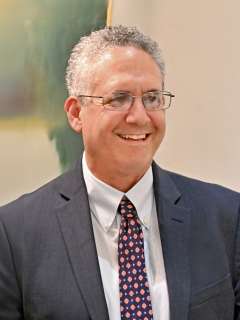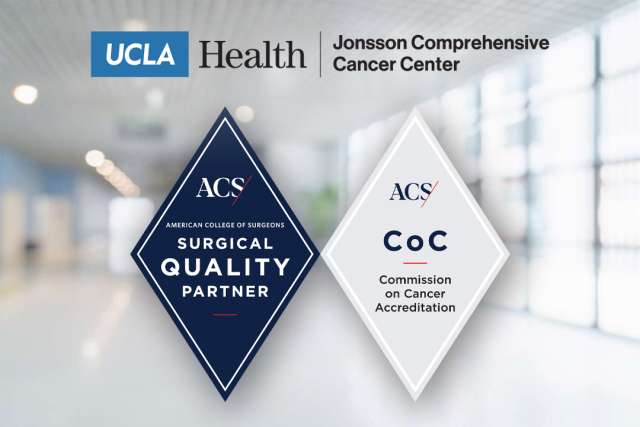
Michael Teitell, MD, PhD
Specialty
Institutional Affiliation
Languages
Education
Fellowship
Internship
Degrees
Residencies
Board Certifications
Contact Information
Phone
Scientific Interests
Dr. Michael Teitell's lab is interested in molecular mechanisms of malignant transformation, with an emphasis on germinal center derived B-cell lymphomas. A screen that compared gene expression profiles from B-cell lymphomas in immune deficient versus immune competent settings identified TCL1 as a dysregulated oncogene in a large number of B-cell leukemias and lymphomas. Generation of a TCL1 transgenic mouse, in which TCL1 expression was maintained throughout B- and T-cell development, lead to one of the first genetic models for germinal center B-cell lymphomas and less frequently B- and T-cell chronic lymphocytic leukemias.
Studies in this model and in comparable human tumor samples lead to the elucidation of key aspects of TCL1-driven lymphomagenesis, including companion genetic and epigenetic alterations required for malignant transformation, affected signal transduction pathways, and a mechanism for abnormal avoidance of cell death. Tcl1 was shown in a broad screen by others to be the only verified oncogene that regulates stem cell self-renewal, providing a potential molecular link between so-called cancer stem cells and B-cell lymphoma that our lab is pursuing in studies of stem cells.
Since TCL1 dysregulation is the key for its tumorigenic action, studies on the mechanism of its expression have lead to discovery of a novel gene regulatory program for germinal center B-cells that requires signaling to the transcriptional co-repressor TORC2/CRTC2. This signaling links DNA damage repair sensing, such as occurs during antibody maturation steps in germinal center B-cells, to a major metabolism pathway that controls glucose homeostasis and cell respiration. One current goal is to understand the complex interrelationship between DNA damage, gene regulation, and control of cell metabolism uncovered by this work and to identify key components in this network as targets for therapeutic intervention.
Highlighted Publications
Huang Y, Park Y, Wang-Zhu Y, Larange A, Arens R, Bernardo I, Olivares-Villagomez D, Herndler-Brandstetter D, Abraham N, Grubeck-Loebenstein B, Schoenberger SP, Van Kaer L, Kronenberg M, Teitell MA, Cheroutre H. Mucosal memory CD8+ T cells are selected in the periphery by an MHC class I molecule. Nat Immunol. 2011 Oct 2;12(11):1086-95. doi: 10.1038/ni.2106.
Sherman MH, Kuraishy AI, Deshpande C, Hong JS, Cacalano NA, Gatti RA, Manis JP, Damore MA, Pellegrini M, Teitell MA. AID-induced genotoxic stress promotes B cell differentiation in the germinal center via ATM and LKB1 signaling. Mol Cell. 2010 Sep 24;39(6):873-85.
Wang G, Chen HW, Oktay Y, Zhang J, Allen EL, Smith GM, Fan KC, Hong JS, French SW, McCaffery JM, Lightowlers RN, Morse HC 3rd, Koehler CM, Teitell MA. PNPASE regulates RNA import into mitochondria. Cell. 2010 Aug 6;142(3):456-67.
Kuraishy AI, French SW, Sherman M, Herling M, Jones D, Wall R, Teitell MA. TORC2 regulates germinal center repression of the TCL1 oncoprotein to promote B cell development and inhibit transformation. Proc Natl Acad Sci U S A. 2007; 104(24): 10175-80.
Teitell MA. The TCL1 family of oncoproteins: co-activators of transformation. Nat Rev Cancer. 2005 Aug;5(8):640-8.


